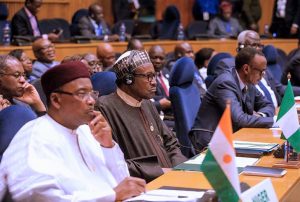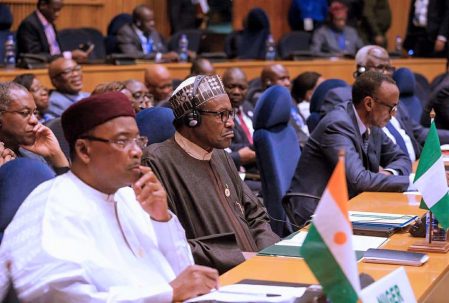
Africa is often imagined to be a place in which presidents can do whatever they want, unencumbered by constitutional or democratic constraints. A large body of literature has developed around the idea that the law can be flouted at will, leading to a situation in which what really matters is the personality of the president, not the rules of the game.
The implications of this way of understanding the continent are profound not just for how we think about Africa, but also for how we study it. If democratic institutions don’t constrain leaders, there is no point in researching them. Instead we should spend all of our time looking at informal processes such as ethnicity and patrimonialism.
But, although this image is often repeated within policy circles and the media, it is wrong. A new book I edited, Democracy and Institutions in Africa, argues that approaching the continent in this way creates a deeply misleading picture of politics that underestimates the potential for democratisation.
In other words, if we want to understand democracy in Africa, we need to take the official rules of the game more seriously.
The book covers a wide range of institutions, including political parties, legislatures, constitutions and judiciaries. As a taster, here are three important ways in which democratic rules constrain African leaders more than you might think.
Holding elections promotes democracy
It’s often said that Africa features elections without change. But repeatedly holding elections not only creates opportunities for the opposition to compete for power. It also promotes democratic consolidation.
Looking at all elections held in Africa since the early 1990s, Carolien van Ham and Staffan Lindberg find that as long as a minimum threshold of quality is met, holding elections increases the quality of civil liberties. This in turn creates greater opportunities for opposition parties to mobilise.
That’s because elections have a number of democratising effects. These include training voters in democratic arts, encouraging coordination between opposition parties and increasing the pressure on ruling parties to reform the political process. This last happens for example by allowing for a more independent electoral commission.
Repeatedly holding elections fosters new democratic openings that tend to make it more difficult for leaders to hold on to power in the long-run.
Legislatures are tougher to manage than before
The common depiction of African legislatures is that they are weak and feeble. They’re portrayed as “rubber stamp” institutions that can do little to hold governments to account. But this is not an accurate depiction of what happens in a number of countries where conflict between parliaments and presidents is becoming a more common.
As Michaela Collord highlights, in recent years the Ugandan legislature has threatened a government shutdown over an unsatisfactory health budget. Tanzania’s parliament has also forced seven Cabinet reshuffles. South African MPs from the radical Economic Freedom Fighters party captivated TV audiences nationwide by repeatedly calling President Jacob Zuma a thief because he was accused of corruption.
Significantly, parliaments are also beginning to play a role in some of the most important decisions. In both Nigeria and Zambia, it was the legislature that ultimately rejected efforts by sitting presidents to extend their time in office beyond constitutionally mandated limits.
Term-limits are starting to bite
On the theme of term limits, pretty much the only time you will read about this particular institution in the media is when an African leader has changed the constitution to remove them. In the last 20 years this has happened in a number of countries including Burundi, Chad, Uganda and Rwanda.
By contrast, when a president respects term limits and stands down, it goes largely unnoticed. This has created the misleading impression that African leaders can break the rules at will. The reality is that in most cases they can’t.
Reviewing every country in Africa from 1990 to the present, Daniel Young and Daniel Posner find that term limits are twice as likely to be respected as broken. This is especially true for states that lack natural resources.
Significantly, they also demonstrate that when one president respects term limits it creates a powerful precedent that subsequent rulers feel bound to follow. To date, there is not a single country in which a president has tried to outstay their welcome after their predecessor willingly stood down.
The shape of things to come
These examples are part of a broader trend. In 2015, a sitting civilian Nigerian president lost power to another civilian ruler for the first time. In 2016, the same thing happened in Ghana. In 2017, it was Gambia’s turn. Since then, Liberia and Sierra Leone have also seen opposition victories.
From a few isolated examples in the early 1990s, almost half of the continent has now witnessed a transfer of power.
Moreover, it is not only when it comes to elections that things are changing. In 2017 Kenyan became the first country in Africa – and only the third in the world – in which the election of a sitting president was nullified by the judiciary.
In South Africa, President Jacob Zuma never lost a national election and the African National Congress continues to dominate parliament. But he was nonetheless forced to resign and leave power early by a combination of public hostility and the emergence of Cyril Ramaphosa as the party’s new leader.
Of course, this does not mean that all presidents have to follow the rules, or that all of these institutions are starting to perform well. The continent features a remarkable variety of political systems and some of its states are on very different political trajectories. In more authoritarian contexts such as Cameroon, the Democratic Republic of Congo, Uganda, Rwanda and Zimbabwe, the quality of elections remains extremely poor; even when leaders suffer a setback they may be able to bounce back.
![]() But while the process of institutionalisation may be patchy and uneven, one thing is clear: Africa is not without institutions, and we will deeply misunderstand its politics unless we pay careful attention to the rules of the game.
But while the process of institutionalisation may be patchy and uneven, one thing is clear: Africa is not without institutions, and we will deeply misunderstand its politics unless we pay careful attention to the rules of the game.
Nic Cheeseman, Professor of Democracy, University of Birmingham published this article in The Conversation.






